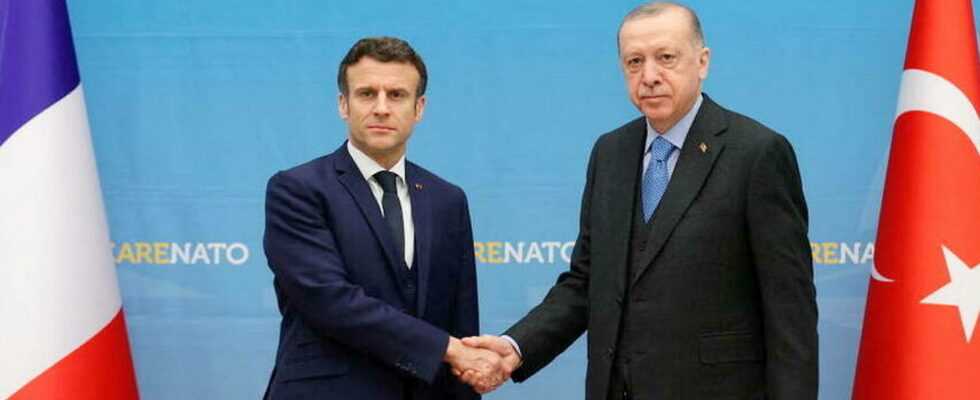LFrench President Emmanuel Macron on Thursday May 26 called on his Turkish counterpart Recep Tayyip Erdogan to “respect the sovereign choice” of Finland and Sweden to join NATO. The head of state wants a “solution” to be quickly found to lift the threat of a Turkish veto.
“The President of the Republic underlined the importance of respecting the sovereign choice of these two countries, resulting from a democratic process and intervening in reaction to the evolution of their security environment”, indicated the Elysée to the outcome of the call, one hour long. “He wanted discussions to continue to find a quick solution” to Turkish opposition to the two candidacies, added the French presidency.
The two Nordic countries, breaking with a long tradition of neutrality, decided to join NATO in reaction to the offensive launched by Russia in Ukraine on February 24. But Turkey threatens to block their entry into the Alliance, which requires the unanimity of the member states of the organization. In question, Ankara accuses the two countries of harboring Kurdish militants of the PKK, the Kurdistan Workers’ Party. An organization deemed terrorist by the Turks, the latter demanding their extradition.
READ ALSONATO: the underside of Erdogan’s bargaining
Libya at the heart of the Franco-Turkish discussion
Turkey is also considering a new operation against the Kurds in northern Syria, which risks sparking new tensions within NATO, particularly with France. The French and Turkish presidents also spoke of “the urgency of making possible the export of Ukrainian cereals”, blocked by the war in the ports of the south of the country, which threatens to lead to a world food crisis. Emmanuel Macron will continue “in the coming days contacts on this subject with the relevant international actors”. They discussed the “different possible routes to transport” these harvests, in conjunction with the United Nations, and “agreed to stay in contact in order to find a solution quickly”.
One of the avenues studied is the establishment of a naval corridor from Odessa, in the Black Sea, in which Turkey could be an important player. The two leaders also expressed “their concern over the deterioration of the situation in Libya”. Since the beginning of March, Libya has had two rival governments, as between 2014 and 2021. A situation which therefore lasts after more than a decade of chaos following the fall in 2011 of Muammar Gaddafi. The country remains plagued by divisions between competing institutions in East and West.
A government formed by ex-interior minister Fathi Bachagha – endorsed by the parliament sitting in the east – is competing with the executive in Tripoli led by Abdelhamid Dbeibah, which emerged from UN-sponsored political agreements.
READ ALSOLibya: the grand bazaar
